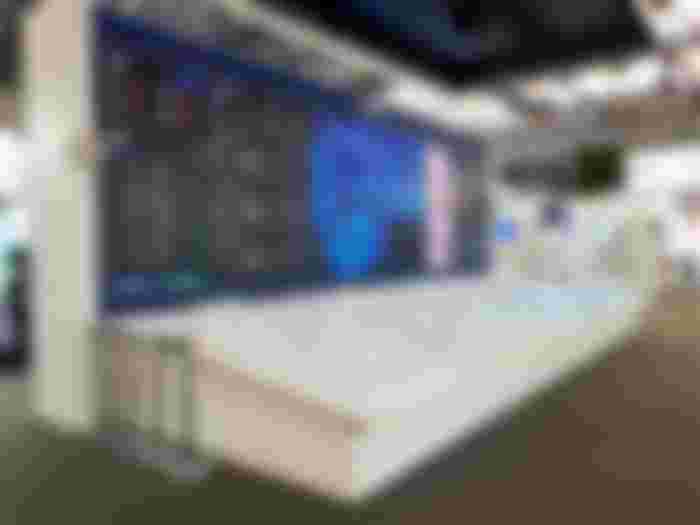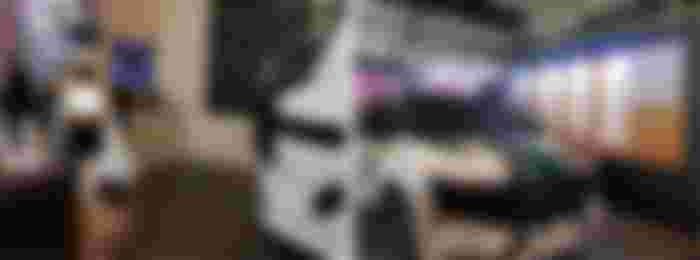Dystopias and cinema (II): Illusionary worlds

We continue talking about dystopias and movies. This time we will write about the undetectable robots, with opaque algorithms, with human appearance or pretending to be harmless smartwatches, smart mobile devices, smart cleaning robots, and all kinds of smart gadgets, that are unnoticed in our daily lives. They obtain our information, they transmit it to each other thanks to Internet of Things (IoT), they evaluate it and send it to a large central cybernetic control machine.

So the dystopia involves a parallel implementation of a digital 1984, where all people are uninterruptedly observed in order to preconize their actions and desires (or potential crimes) as in Minority Report (2002), based on a story by K. Dick.
Smartwatch, smartphone, cooking robot, smart TV, virtual assistant… they are permanently listening and getting information. And they could belong to the same company. So, that company could have access to my patterns, my heart rate, my face, my voice, my fingerprints, my exercise routine, eating and transportation patterns, what I watch on TV, who I call or visit, my preferences on social networks, my family conversations, what I buy, how often I buy, and even the surface of my home, intuiting the furniture I own and the apartment I live in.
The dystopia does not lie in this accumulation of information but in the fact that its control could end in the hands of a single company or a single government, sometimes with little democratic background. We would be living in a 'corporate society', in which a 'president-manager' uses science and technology to insert an artificial entities among the masses that go unnoticed, or are even accepted with pleasure, to maintain the status quo as in Metropolis (1927).
But there is more. Police robots, not as powerful for now as the one depicted in Robocop (1987), but equipped with autonomous cars with facial recognition, are also a reality. If we imagine them equipped with some kind of defense device, we would already have a potential 'army of terminators' under the control of a minority that would only have to alter the parameters of 'delinquency' -for example, those who share certain ideas, meet with certain people or consume certain products on certain religious dates- to establish an ultra-efficient totalitarian regime with a single click of the mouse.

Meanwhile, in the virtual world we are 'what we want to be', while we care less and less about the real world around us. In the 'Matrix', we can be whatever we want. So we contribute to an artificial illusion, similar to that depicted in Ready Player One (2018), stimulated by unreal environment or by other people experiences as in Strange Days (1995). And without realizing that everything is a fictitious reality, under an even more fictitious reality, under another fictitious reality… as in Existenz (1999), Dark City (1998) or Level 13 (1999).
It is just an escape from the painful reality into a complacent artificial illusion with several layers. But in this 'happy world', we have no right to shout, get angry or have a bad day because these are not acceptable behaviors worthy of positive reinforcement (in the form of a 'like'). Aesthetic, automatic and empty 'likes', devoid of any sense, emotion or critical reflection, but with a very real effect taken to the extreme in Black Mirror: Nosedive (2016).
We also generate a paradise of castes, where each one fulfills his predestined function according to his social status, occupying the corresponding wagon of Snowpiercer (2013) where the first class, responsible for guiding the train-world, feeds on delicatessen and lives in plenitude, while those in the tail wagon, the first to be sacrificed in case of accident, do so on waste and live the greatest misery.
As for medical advances, it is not superfluous to mention genetic editing, apparently already applied in humans. Eliminating 'errors', perfecting the human being through genetics or through the implantation of technological devices are also realities. But there are also warnings about this kind of transhumanism, as we see in Transcendence (2014). Or questions about: 'who will be able to be improved and who does not deserve it?' according to social class, resources, or power as we saw in Gattaca (1997) and more recently in Altered Carbon (2018), where the rich and powerful people enjoy healthy and young bodies thanks to a periodic backup of their minds that, downloadable in any physical body, makes them immortal. Meanwhile, the miserable people have to accept the possibility of dying at any moment without any backup of their minds, in a sad aging, tumorous and suffering carcass that they have not chosen.
Technological utopia aims to eliminate all 'human error'. But in doing so, eliminating subjectivity and the 'organic inefficiency', It eliminates the very essence of human beings, including the free will that is replaced by a complex multilevel deterministic decisions tree as in Black Mirror: Bandersnatch (2018).
So that utopia becomes a dystopia. We move towards a world where algorithms decide more than humans, who stop deciding.
Where sensors and AI collect data from reality while people walk away from it to live a fantasy.
Where the Internet of Things connects 'things' (as its name suggests) while humans live more and more isolated lives without demanding an Internet of People.
What do you think about? Are these movies, just movies? Or they are something else, like a some kind of prophecy?
Remember that if we can imagine it, it could be possible. Or if you preffer, what is possible is possible because we have imagined it.





Por Supuesto que son mucho mas que películas, son proyecciones del futuro. Nada de lo que mencionaste es una mera fantasía, todos son proyectos algunos ya muy avanzados como el metaverso por ejemplo, solo que la gente común no poseemos toda la información de lo que se esta gestionando a nivel mundial con la tecnología, a las que muchos aseguran que tomará el lugar de los seres humanos en trabajos y funciones que hasta ahora solo el hombre podía desempeñar.